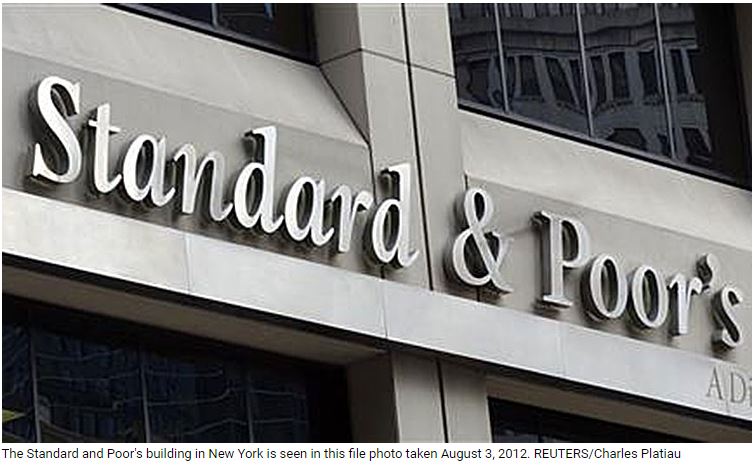Cambodia: S&P says banking system risks ‘moderating’
Due to robust national growth and moderating risks in the financial sector, credit rating agency Standard & Poor’s has revised the Banking Industry Country Risk Assessment (BICRA) economic risk trend for Cambodia to stable from negative.
Despite the positive assessment, the sector remains “high risk” due to excessive loan growth, S&P said.
In a report released Tuesday, S&P said the current trend leans toward stabilisation, particularly in view of a recent moderation in loan growth and measures by the authorities to cool the property market and control credit flow through more stringent capital and liquidity requirements.
However, loan growth in the country stands at more than 30 percent, which the agency deems as a source of credit risk.
“We expect Cambodia to maintain above average GDP growth of around 7 percent over the next 12 months, although we view the economy as lacking diversity compared to peers such as Vietnam. In our opinion, Cambodia’s continued robust economic growth makes its banking system more resilient to shocks,” S&P said.
“We believe economic imbalances are high in Cambodia, particularly given the significant flow of credit to, and growing concentration in, the construction and real estate sector. While our view of the risks in Cambodia is one of stabilisation, we believe the overall risks to the banking system remain extremely high,” it added.
Michael Puli, a Singapore-based S&P credit analyst, told Khmer Times via email yesterday that there are three main reasons for the improved assessment: better macroeconomic conditions, post-election stability, and certain bank-specific factors.
“The starting point for our assessment on Cambodian banks is ‘B+’, reflecting extremely high risks in the banking system,” Mr Puli explained.
“In our opinion, the main challenges include: high property prices and credit growth, limited system-wide data on a regular basis and, similar to other frontier markets, regulatory supervision that is still evolving.
“We believe the risks to the banking system remain extremely high,” he stressed, explaining that credit growth continues to outpace wider economic growth, fueled by foreign investment into construction and real estate activities.
The main risk to the industry is from a decline in foreign investment, particularly China, he said, adding that such a decline could undermine economic growth and trigger a price correction in property, which is the main protection banks have from defaulting customers.
He said that the National Bank of Cambodia (NBC) is increasing requirements on banks, including capital, liquidity, and the recognition of bad loans.
“These are positive developments to improve the regulatory framework, and help align it with international standards.”
However, he added that they have not seen the NBC introduce rules specifically targeting risks in property and construction, such as higher capital requirements and other advanced tools, which have been introduced in other countries.
This week S&P also published new ratings for two of the largest commercial banks in the Kingdom.
Acleda’s long-term issuer credit rating was upgraded to ‘B+’ from ‘B’. The bank’s ‘B’ short-term issuer credit rating was reaffirmed.
“Acleda’s business franchise is strong, geographically diverse, and embedded in the domestic economy. It is a leader in many ways. We upgraded our rating to ‘B+’ from ‘B’ to reflect improvements in the wider economy, and rate the bank similar to the banking system,” Mr Puli said.
He added that Acleda was pursuing a less aggressive credit growth strategy, leading to a reduction in risk.
In Channy, Acleda Bank president and group managing director, said the getting a “B+” was an important achievement for the bank.
“We have set up a risk management team to mitigate risks, which resulted in a big improvement in asset quality,” he said. “This, coupled with the country’s positive economic performance, has enabled us to achieve the rating.”
S&P also revised the outlook on Advanced Bank of Asia (ABA) to positive from negative, giving ‘B’ long-term and short-term issuer credit ratings.
S&P’s outlook revision on ABA reflects the bank’s improving business franchise, underpinned by a significant growth in its market share.
“We would upgrade ABA if it continues to demonstrate good profitability and sound asset quality as its market share rises,” Mr Puli said.
Source: https://www.khmertimeskh.com/50553945/sp-says-banking-system-risks-moderating/


 Thailand
Thailand




